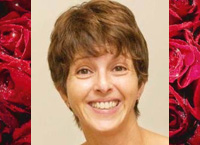

 Donor Mother Sponsored by |
|
|
In June 2008, Denien Wilde's husband Patrick discovered their two-month old son, Quinn, unresponsive and not breathing. Quinn had sustained severe brain damage, likely from a seizure that caused him to stop breathing. Once it was determined he would not recover, Denien and Patrick made the heartbreaking decision to remove their son from life support and let nature take its course. They also decided to donate his heart valves, helping to save the lives of two infant girls, one Quinn's age and the other five months old. It is the Wildes' great hope to continue to honor their son's memory and to provide strength and hope to others by sharing their story. Denien's Story At 2:30 a.m. in June 2008, Denien Wilde's husband Patrick, sleeping on one section of the living room couch, discovered their two-month old son, Quinn, who was on a different section of the couch, unresponsive and not breathing. The police arrived in minutes, scooped Quinn up and rushed out of the house to the hospital blocks away. Quinn was revived at the hospital, then flown to another hospital 50 miles away. Tests confirmed that Quinn had sustained severe brain damage from the lack of oxygen and only his brain stem was functioning. The pediatric neurologist asked Quinn's parents if they had noticed anything odd about Quinn. The Wildes learned the subtle things they had started noticing only a week before were signs of seizures: difficulty eating, increased grunting while he slept, and glazed, unfocused eyes at times. The pediatric neurologist surmised Quinn had a seizure disorder, and told Denien and Patrick if they had taken Quinn to the doctor, they would simply have been told he had gastric reflux. Quinn had probably experienced a seizure that caused him to stop breathing. The Wildes had to decide what was best for Quinn, as he was not going to recover from the brain damage. Denien and Patrick made the heartbreaking decision to remove Quinn from life support and let nature take its course. They also decided to donate his heart valves. Quinn's hospital room was on the sixth floor of the hospital. Shortly after life support was removed, Denien noticed a beautiful yellow and black butterfly hovering outside Quinn's window. "This butterfly hovered outside his window for some time. For us it was a sign of grace," said Denien. Quinn was transferred to a hospice facility. "To my astonishment when I looked out the window into one of the many gardens, I saw a big metal sculpture of Quinn's butterfly," recalled Denien. There was a plaque on the wall that explained the artist had been commissioned by a generous couple who donated the sculpture. It also described the butterfly: a tiger swallowtail butterfly which is seen in gardens, but is also known to soar to treetop heights. "After seeing the butterfly sculpture, I knew we were in the 'right place.' We spent 10 days at the hospice facility with Quinn, holding him, talking to him and singing to him," said Denien. Quinn passed away in the hush of the early morning. Quinn, who would have turned four this past March, passed away in 2008 at the age of nine weeks, after which his heart valves were donated through Community Tissue Services. His donated tissue helped save the lives of two infant girls, one Quinn's age and the other five months old. It is the Wildes' great hope to continue to honor their son's memory and to provide strength and hope to others by sharing their story. |
